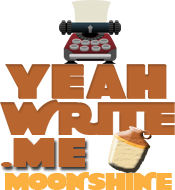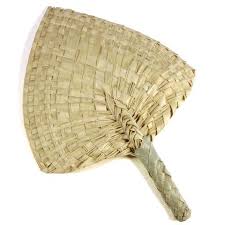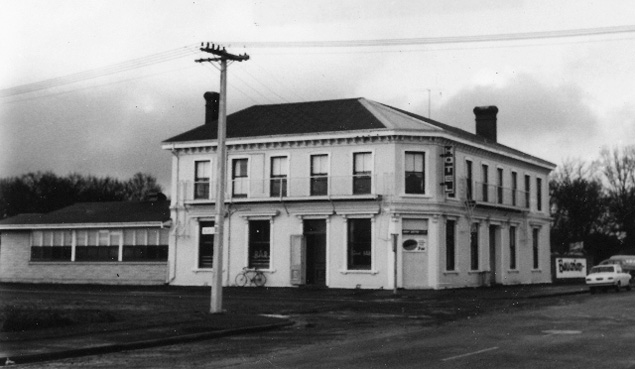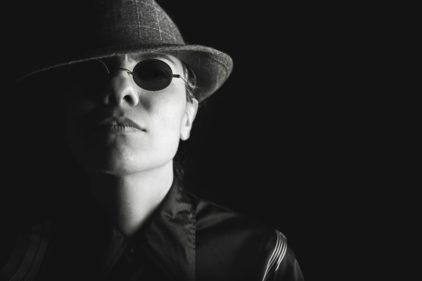This story has been through two submissions. It started off as a submission for The First Line and then I rewrote and extended it as a submission for the annual “Sunday Star Times Short Story Competition”, which here in New Zealand is a very prestigious competition.
As it hasn’t been accepted elsewhere, I have decided to publish it here.
Soft, White Bread
Like an inappropriately affectionate old acquaintance, the wind flung itself at me the moment I stepped out of the airport. The air was thick and briny from being pulled in southerly gusts off Cook Strait, and I could no longer hide my anxiety under the cover of a rough landing into Wellington.
“I’d forgotten about the wind.” I muttered to the taxi driver as I got into the back seat, while peeling my hair from my lipstick.
“Everyone does.” The car smelled of cigarettes and chemical vanilla. The brine cowered in my hair. As we pulled out along Evans Bay, the familiar settled into my gut. The city lights reflected off the water and the car radio poured the kiwi accent back into my life.
I spent a few days in cafes heaving with people and walking to views of water and land in all directions. A trick of so many peninsulas. I followed those days with nights drinking in small, darkened boxes alongside people who look like their story could be anything.
The feeling of being ready didn’t arrive but the time to take the dutiful step did. I bought a car from a damp looking man in a button down cardigan, then shed the cocoon of hills and valleys and headed north. The car seemed to know the way on its own. I released to the twilight where large periods of time cannot be recalled.
The way I left home but in reverse.
*************************
The house still squatted on a neat lawn, the flowerbeds laden with thick bark chips. It is the ordered state of a family home in its retirement. Next door, there is a trampoline with a netted cage to take the parental fear out of bouncing. Ride on toys are scattered and a large dog paces back and forth, its head lowered. Both houses are as familiar as my own hands; their commitment to suburbia resolute.
“Hello? Mum? Maricel?” The side door to the kitchen was open, the radio on the windowsill played a classical piece, darkly heavy on the strings. The air is redolent with baking and citrus floor cleaner, a few degrees too warm, and the space had the aura of a rest home, bright and clean, to mask the decay.
“Hello? Mum?” I move deeper into the house and there she is. Asleep in the chair by the living room window, her mouth agape. Maricel appears, an empty laundry basket swinging in her hand.
“How on earth can she sleep like that? It looks so uncomfortable.” I caatch the fleeting press of a frown on Maricel’s face at the words and had feel the subsequent press of panic at the prospect of seeing my mother like that every day.
“She is fine, April. She only naps for short times.” She turns away. “Tea?”
Maricel, a small Filipino woman, started coming in to help hang washing, clean the bath and to change the light bulbs. That was when I had first realised the enormity of leaving. Without me, my mother would be sitting in the dark. The falls came next. In the garden, Mum’s foot misplaced on the edge of the path before leaving her crumpled like old newspaper. In the kitchen, she had bent to get a pot from lower cupboard and toppled over, the thin skin on her arm peeling back and her shoulder bruised with an instant splash of blue.
Then she had slipped in the shower.
“Nothing but my pride broken, April. I only lay there a little while.” She had sent me a selfie of the black eye. It would’ve been funny, that selfie, if she hadn’t looked like a victim.
“Maybe Maricel would like to come and live with you, Mum. You have a spare room.” The empty space at the suggestion hovered on the phone line. “You seem to like her.” It was a dark space, barbed and dangerous. We both turned away from it and talked about the garden.
Maricel moved in and Mum grew more and more dependent on her. The dependency ran through my veins too, acidic and sickening. But Maricel needed to tend her own familial duties and I returned. She had showed me the tiny life Mum lived and how to support that life with infinite patience.
“When we walk down the driveway, there is a bus that comes about this time. See? There it is? The driver will wave to us. Don’t forget to wave.”
Maricel’s tone was that of someone speaking to a preschooler. I wanted to scream “My mum is still a person. An adult person for fuck’s sake. She’s not an imbecile or infant.”
But, I wave to the driver, obedient and raw.
Then, I am the one required to talk constantly. To coordinate the bland food, answer repetitive questions, dole out the mind-numbing routine. The world shrank overnight, even smaller than I thought possible, in that place of too many memories and no scope for change. Days stretched out, a cold and suffocating grey. I put medication and lavender scented clothing into the suitcases from my childhood.
We both needed the lake.
**********************************************
More than a year of lower than average rainfall had transformed the lake. The usually soft edges had given way to cracked, hardened dirt and further out, where the deepest, darkest water once resided, a thick dank mud now spoiled in the sun. The lake, and the bach on its quiet shore, had been a space for respite for as long as either of us could remember. But the dry, brown space which greeted us this time was foreign and foreboding.
Mum settled quickly. The comfort of the familiar house outweighing the need for routine. She tested each chair, a desiccated Goldilocks, before choosing the one that allowed to her to see both the lake and the television. She sat, running her hands over the blanket on her knee, the crocheted browns and blues woven with memories.
“Remember the McCaffery clan, April? They had the bach with no porch. They gave me this blanket when we bought this place. Lovely people.”
We reminisced about bonfires by the water and barbecues with the bach families. Mum smiled when she saw me drinking out of a yellow tinted glass tumbler It had always been mine out of the random mix of glassware bought here in dusty boxes from the op shop.
There was, of course, the unspoken past. Like time out with Grandma at the bach when Mum had “the dark times”. As an adult, when my own dark times loomed, I returned. I would swim in the lake on scorching hot days, lazing on my back alternating between looking up at the sky and looking at the back of my eyelids. The effortlessness of floating meant I could unburden. The unburdening started inside my head, then it came out in a whisper. Eventually, I would be upright in the water, legs pedalling and hands making figure eights, my head tipped back as I let the darkness out. It shot from my mouth and then slithered into the glassy water like a demented ribbon, before sinking into the depths. The lake had promised to hold the darkness forever.
For Mum, there appeared to be nothing rotten swept under the rug. For her there was the immediate, nostalgia and Maricel.
“Maricel is coming back, isn’t she?”
“Yes, Mum. She is just visiting her daughter.”
“Oh, good. Maricel is the only one who cares about me, you know.”
“Maricel, will be back in my house when we go there again, won’t she?”
“Yes, Mum. She will be there.”
“Oh, good. Maricel cares about me.” .
This morning, Mum sat sulking at the kitchen table in front of an uneaten breakfast. The scrambled eggs had too much pepper. The toast too crisp. “Maricel makes nice food. It doesn’t hurt my mouth. Food shouldn’t hurt me, April.”
I had made a strong plunger of coffee and had swallowed tablets for the headache that was tapping away at the edges of my skull. The morning light came in shafts through the window and the air had a dry crackle to it.
“Maricel will make my food again, won’t she?”
“Yes. Yes, yes, yes. For the love of god, yes.” The yellow glass tumbler had shattered as I slammed it onto the kitchen bench. I stared at my thumb, where a spot of blood appeared and then grew until it slid away in a vibrant streak across the nail.
Then from the table and between weeping gasps, my mother said “I don’t want to live anymore.”
The demonic ribbon of darkness had come into the house, from the dried up depths and the scourge of the mud that used to be the lake. It had dragged itself up the porch steps and it was tired from the journey and from the pressure of staying hidden. It came in through the open door, and found a willing host seated at the kitchen table. It recognised the feeble sounds of the hopeless. It wasn’t the person who had left it in the lake, but this body would do.
I sucked my bleeding thumb, looking for the comfort it provided as a child. Trapped between empathy, crushing responsibility and wanting to run as far as possible, I took breaths so deep my lungs strained against bone. Within a few practiced minutes I had gathered the corners of myself back in and folded them neatly away.
I gave Mum a bowl of yoghurt with sliced banana and liquid honey to replace the uneaten eggs and watched her take her medication with lukewarm apple tea. I put a plaster on my thumb even though it had stopped bleeding. I made sure Mum was securely seated watching morning television while I showered with the bathroom door open. I swept the porch, checked the levels in the water tank, ordered more water to be delivered, and put on a load of laundry. I read to Mum until the next television programme she liked to watch had come on.
It was then that I had gone looking in the lake mud for what else was lurking there. As I walked out to where the darkness had landed, the mud pulled at me like betrayal. I negotiated each step trying to get closer to the remaining water and see if it still held any of my darkness at all. The earth dragged at my feet and my shoe was pulled off. Mud spilled over its edges and swallowed it. I stood there, foot dangling, unsure what to do next.
“April? For goodness sake, what are you doing out there?” She was on the porch, wide legged and with a slight tilt to her body. Her dark wooden walking stick clutched in her good hand. She wouldn’t try to go down the porch steps on her own and so called out like frightened child.
“I think there is a bird trapped in the mud, Mum.” The lie slipped over my teeth, with no hesitation. I pushed my bare foot into the mud and kept my back to my mother.
“April? April? Come back here. That looks dangerous.” The thin reedy voice was so clear it was as though it was wired directly into my brain. The mud was drew my foot and leg deeper and deeper.
“April? April?” I pulled firmly against the mud, and it released my foot with a reluctant sucking noise. I did an odd, one-shoed walk back.
“Did you get the bird, love?” Mum squints, the soft folds of her eyelids and medication-induced puffy cheeks give her a Buddha-like look.
“No, I was wrong. There wasn’t a bird”. The mud was drying on my leg and began to itch. Mum shuffled over to a porch seat. Little sounds escaped her; the squeak of her shoes, the thunk-thunk of her walking stick, the soft release of breath as she sat in her porch chair.
“You gave me a fright, gallivanting around out there”. There was an edge to her voice now that she was seated and didn’t need the edge to keep her upright. The vocal knife of a much younger woman.
I cleaned myself off using the garden hose that was coiled in the dead brown stalks of grass in front of the porch and dropped the now single shoe into the outside bin. Back on the porch, Mum was already asleep, powdery and peaceful, her head dropped to one side, her mouth open. Her breathing regular and shallow.
I should have gone to prepare lunch. Soft, white bread and cottage cheese sandwiches, the way Maricel showed me; guaranteed to be eaten. I should have pegged voluminous old lady underwear onto the washing line to dry in the heat of the day. Or decanted pink, white, yellow pills into little plastic cubes to keep track of the time and day of consumption.
Instead, I watched the tiny vibrations of Mum’s cheeks each time she exhaled and examined the veined, bony, spotted old hands that held each other in the flowery cotton lap.
Those hands had gently taken my own small hand to cross the road and had also given me hidings wherever they could reach. The same hands had, on several occasions, slapped my teenage face. The fire between mother and her only child not quelled by the influence of a father nor contained to protect younger children. Those hands that had cooked and cleaned and nurtured had equally dealt their own blows. Now, as I helped her into bed, into her clothing, into the shower, those hands clung to me with a strength that did not match the rest of the failing body.
Mum’s eyes fluttered open. “Is it lunch time yet, girl?”
“Yes, Mum. I’m going to make it now.”

Like this:
Like Loading...




 An old fan in the corner, blades caked in dust, is blowing on me. The fan came with the house, just like everything else. It has taken me months to adjust to living in a furnished place with only few of my belongings around me. I turn the house upside down looking for the small cheese grater or a specific bed sheet, before realising that item belonged in that other life.
An old fan in the corner, blades caked in dust, is blowing on me. The fan came with the house, just like everything else. It has taken me months to adjust to living in a furnished place with only few of my belongings around me. I turn the house upside down looking for the small cheese grater or a specific bed sheet, before realising that item belonged in that other life. fan out of dried pandanus leaves. She has a pile of finished ones next to her in a woven coconut palm basket.
fan out of dried pandanus leaves. She has a pile of finished ones next to her in a woven coconut palm basket.




